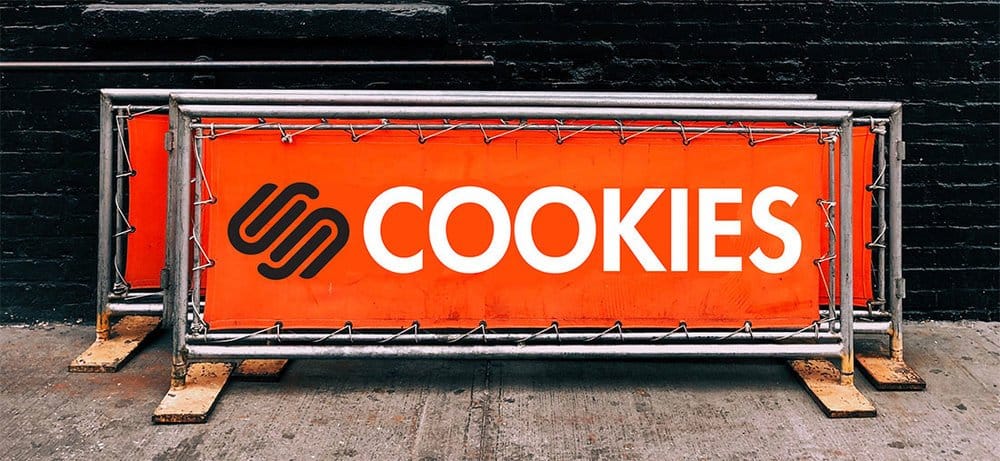
The most important thing about cookies soon
A cookie (“cookie” or “cookie”) is a text file that is stored by a website in the browsing history of the person visiting it. If this user calls the page again, then the cookie sends this information back to the server – thus it can be understood how often and how long a page is visited by the same user.
Through the use of cookies, operators can optimize their offers, as this way the traffic of one’s own side is pointed out and the user preset changes are available again at the next visit.
Cookies and other programs that serve data storage are widely frowned upon by many users. In particular, cookies are often very vulnerable to data misuse.
“Biscuits” on the Internet

What does that mean for the user?
Although the term “cookie” generally leads to associations with sweet pastries, a cookie while surfing has nothing to do with a snack while surfing. The electronic namesake is the center of many arguments, and despite the innocent name, many users are skeptical about cookies.
What is a cookie/cookies? What does “cookies” mean? Why is a cookie message appearing recently when a page is visited? Should I agree or disagree with cookies? The following guide answers these questions and gives you an overview of the topic.
What are cookies – and what are they not?
Since there are many uncertainties and misconceptions regarding cookies and their function, some underlying mechanisms should be clarified.
Even though the Internet still promises anarchistic anonymity for many, users are far from being as unrecognized as they would like to be. Traces will be left on the Internet in different ways – the majority of users are not aware of the personal ” digital footprint.” This basically starts with what data is already left when you enter the Internet; this is important for understanding cookies.
A user can be found in the network above all by its IP address, ie, the assigned address of its technical device. Whether PC, tablet, or smartphone – every Internet-enabled device has an IP address. This does not mean that with the use of the Internet, your personal files can be automatically accessed from the outside or that people can be easily located by their IP address. The IP address is, among other things for the Internet search history important because the Internet via a browser over the respective IP address is recorded.

Google & Co. are short, digital text files
Cookies are, technically speaking, nothing more than small text files. A website places this file into the browsing history of a user – that is why we also talk about “setting cookies.” The cookie is either from the server to the private user sent ( HTTP cookie ) or when a page is generated ( scripted cookie ).
A cookie is, therefore, a text file that is sent through your browser to the appropriate server each time you revisit a website. In this way, the pages ” remember ” previous visits and can be customized to suit the user and their browsing habits. A cookie stores the tour not only on the hard disk of the user but also through the transmission on the server of the page operator.
The duration of the stock is divided into two types of cookies. Online services that handle sensitive data often work with session cookies: they automatically delete themselves when the browser is closed. Persistent cookies – these are much more common – persist for months or even years in the computer, as long as they are not deleted.
Caution: Do not confuse cookies do not use a ” DoubleClick cookie” – the latter is the name of digital marketing tools from Google.
The regulations for cookies within the EU
Since the countries of the European Union represent a community and liberal value system, the uniform rule is also being sought about the question of data protection on the Internet. That’s why the ” ePrivacy Policy” was issued. This has been extended to include precise guidelines for handling cookies – the latter is also known as the “Cookie policy.”
The following is found in Article 5 (3):
Member States shall ensure that the storage of information or the access to information already stored in the terminal of a subscriber or user is only permitted where the subscriber or user concerned is able to do so on the basis of clear and comprehensive information provided in accordance with Directive 95/46 / EC, inter alia, on the purpose of processing, gave its consent .
Therefore, the majority of web pages displayed on the first visit to a corresponding cookie Note text one – often with the tenor that the use of cookies to improve surfing experience and ultimately benefits for the visitor/customer brings. When a website is visited, and the cookie hint pops in the field of view, most users still vote directly. Often it is just an indication that cookies are used – there is no approval there. This is, in fact, contrary to the EU directive on cookies and data protection.

The remaining ePrivacy Directive and the 2009 EU Cookie Directive will is adopted by the EU in May 2018. Data Protection Ordinance is superseded.
Just because almost every website now displays a cookie hint does not mean that cookies have never been set before. Cookies have been in use since about the early 1990s and have since been used in almost all page visits in the background.
About the functions of cookies
Usage analyzes for site operators
Through the use of cookies and the information that they generate, operators can not only understand the visit times and the frequencies of their pages. Based on the usage streams, internal errors can also be detected, and offers can be managed accordingly. Sales and comparison portals, streaming services, search engines, catalogs, etc., therefore, often have precise hit rates. Because the usage behavior is compared with each other and thus, the best possible result can be determined.
Here it is important to emphasize that the corresponding cookies should be detached from the natural person. How often and how long a user spends on certain parts of a website can and should contribute to the improvement of online services without personal data.
Advertising to finance the websites

By using cookies, personal user profiles can be created
The visit and use of many sites are still free for the user – which is why few thoughts on how the operators of a website, even finance.
An essential source of income is advertising. Although it is often perceived as annoying by the user, it serves to maintain web pages so that they can still be used free of charge. Cookies are used to tailor advertisements to the respective user and present them individually when the page is accessed.
Although it is generally true that cookies can only be read out from the page you set, advertising agencies count as ” third party providers ” and thus also have access to the information provided by cookies. In addition, banner ads on websites sometimes set their own cookies. If, for example, an advertising agency is represented on two pages that are visited by the same user. Then the information gained through the cookies can theoretically be combined into a personal profile.
Personalization for the user
The memory function, which serves cookies, are mainly the page itself – but of course, they also have advantages for the user. By using a cookie, revisiting a page will reuse those settings that the user made on previous visits. These include, for example:
the conversion of the page language
Zoom and font size
Fill in fields for data entry (personal details, user account, email address, etc.)
already driven elements on the page
Product suggestions, which are created based on previously selected/purchased products
Personal wish lists and shopping lists
Cookies are not fundamentally wrong or harmful files per se, but a standard page optimization tool. Nevertheless, you can pose a security risk if misused .
Privacy and cookies – a field of tension

Privacy and cookies are often in conflict
Data misuse on the Internet is a common legal issue that still has a lot of criminal energy. In most cases, it is about the profit-oriented sale of records, identity abuse, and of course, money squeezes. Although case law and the police want to step up their actions against such crimes, the rate of investigation is often low, and the perpetrators can not be determined.
Due to the sheer endless number of portals, there are various ways in which online sledder can be operated:
- Spam mails (alleged money gifts, payment reminders of supposed purchases, as reputable disguised emails of well-known pages connected with the request of data input, etc.)
- Malware with payment requests (Trojans that block the use of the PC, the generation of viruses and the associated anti-virus software, etc.)
- the spying out of account data
- Extortion through personal imagery or records of a hacked computer camera
The experiments range from ridiculously obvious scam mesh to very professional appearing offers. Especially older users often fall for such tricks in, since a background knowledge is missing and spams often strike a threatening tone.
About cookies is a data theft possible
If you agree with cookies, you often not only reveal your search history
The possibility of data collection via the use of cookies the most significant criticism of the small files. If you see exactly the product you recently clicked on another page while browsing a banner ad, or if you’re wondering how spam senders found your email address – in both cases probably a cookie. If cookies are vulnerable to external attacks, personal data is theoretically accessible.
Not infrequently, large sites are victims of hacker attacks. Email providers, personal messaging services, and other sites are attacking hundreds and thousands of user accounts. But even on a small scale, this takes place regularly.
Faulty and insufficiently protected cookies can be the reason for such data theft. In the past, several cases have been published in which personal data of ignorant users could be viewed from outside via security gaps in cookies and could also. However, this does not only apply to criminal and fraudulent activities on the Internet. For example, in the course of the NSA affair in 2013, it became known that state information about Google cookies collects information about its users.
The personal profile on the Internet
Disabling cookies and protecting their data is often not complicated
If websites use cookies, then in some way a visitor profile is created. However, this should be done on an anonymous basis – that is, the information sent by cookies should not be attributable to a particular person. The optimization service works in most cases, even if page views and search queries are not linked to personal data.
However, in many cases, a very accurate user profile can be created through the cross-site and sometimes illegal merging of cookies and other data. Browser histories, web searches, purchases, personal account activity – through such gathering, not only can a person be uniquely identified, but he is recorded with all their activities.
Since this type of profiling is a gross violation of individual privacy, many parties are working to block such reconciliation and to ban the sale of user data for profit legally.
Accept cookies – or rather not?

When discussing the necessary and unnecessary use of cookies and privacy, the dispute swiftly hits the millennium. The reason for this is probably that this topic is often fueled by the fundamental discussion of freedom and security, business interests, and consumer interests. Especially against the background of the ever-publicized scandals about the lack of protection of personal data, recording mechanisms such as cookies cause a dull feeling.
It should be clear that despite all external efforts, the World Wide Web remains a mostly unregulated place. This will undoubtedly change over the next few years – but by then, the user should think twice about what he wants to share on this network.
Deleting cookies supports privacy
So whether or not you allow cookies to be set depends on what’s important to you personally and, of course, how you use the Internet. If you value the personalization of online services and you do not have any problems with your browsing habits being tracked by pages you visit, then the use of cookies will probably not bother you. However, many users do not feel comfortable knowing their browsing history is logged.
Deleting and deactivating cookies – this is how you proceed
Of course, it is possible to ignore the cookie hint on a web site simply – but many are bothered by it.
If you use one of the significant search programs and want to deactivate cookies, you can set this via various add-ons for your browser. If you want to remove already set cookies from previous visits, you can make changes to the privacy settings. For example, Safari and Firefox allow a lot of control over cookies. Even Google, whose search engine is often criticized, offers in its browsers Chrome and Chromium such deletions.
Tip: If you want to reduce your data while surfing, a good practice is to use a metasearch engine. This anonymizes your entries, prevents storage on external servers, and usually delivers the same results as popular search engines.
